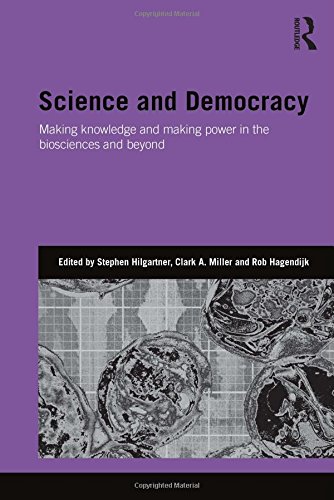

Most ebook files are in PDF format, so you can easily read them using various software such as Foxit Reader or directly on the Google Chrome browser.
Some ebook files are released by publishers in other formats such as .awz, .mobi, .epub, .fb2, etc. You may need to install specific software to read these formats on mobile/PC, such as Calibre.
Please read the tutorial at this link: https://ebookbell.com/faq
We offer FREE conversion to the popular formats you request; however, this may take some time. Therefore, right after payment, please email us, and we will try to provide the service as quickly as possible.
For some exceptional file formats or broken links (if any), please refrain from opening any disputes. Instead, email us first, and we will try to assist within a maximum of 6 hours.
EbookBell Team

4.1
30 reviewsIn the life sciences and beyond, new developments in science and technology and the creation of new social orders go hand in hand. In short, science and society are simultaneously and reciprocally coproduced and changed. Scientific research not only produces new knowledge and technological systems but also constitutes new forms of expertise and contributes to the emergence of new modes of living and new forms of exchange. These dynamic processes are tightly connected to significant redistributions of wealth and power, and they sometimes threaten and sometimes enhance democracy. Understanding these phenomena poses important intellectual and normative challenges: neither traditional social sciences nor prevailing modes of democratic governance have fully grappled with the deep and growing significance of knowledge-making in twenty-first century politics and markets.
Building on new work in science and technology studies (STS), this book advances the systematic analysis of the coproduction of knowledge and power in contemporary societies. Using case studies in the new life sciences, supplemented with cases on informatics and other topics such as climate science, this book presents a theoretical framing of coproduction processes while also providing detailed empirical analyses and nuanced comparative work.
Science and Democracy: Knowledge as Wealth and Power in the Biosciences and Beyond will be interesting for students of sociology, science & technology studies, history of science, genetics, political science, and public administration.